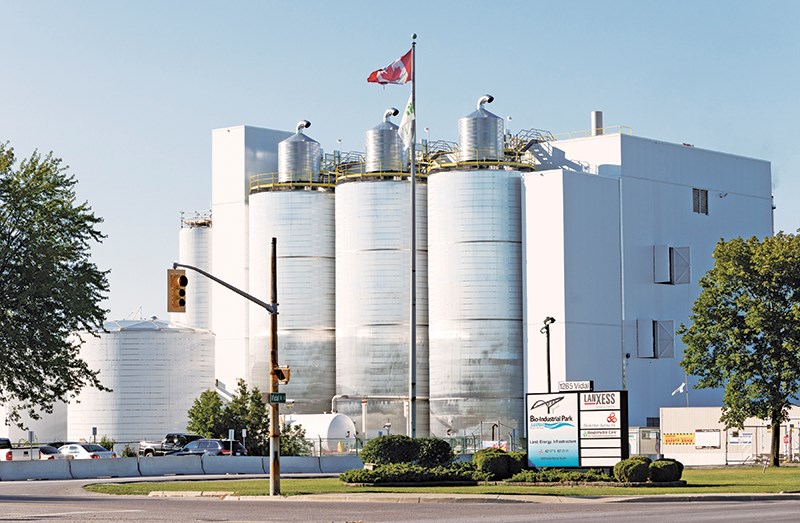Pam Wright
BioAmber is bankrupt and shut down but local officials remain hopeful the Sarnia plant can reopen.
“All is not lost but we are late in the game,” said Sandy Marshall, executive director of Bioindustrial Innovation Canada.
“We’re still working very hard and it’s not over yet.”
BioAmber was the Crown jewel of Sarnia’s fledgling cluster of bio-based “green” companies. The Sarnia refinery, which turned corn syrup into succinic acid — a chemical building used to make everything from plastics to food additives — opened in 2015 at a cost of $145 million, including $51 million in taxpayer funding.
Until a few weeks ago it had 60 employees and was shipping product from Vidal Street to customers around the world.
But today, under direction of court-appointed Price Waterhouse Coopers Inc., it has a skeleton staff, pending the outcome of any offers to purchase the plant or its assets by an Aug. 28 deadline.
There are different ways to make succinic acid and BioAmber has terrific technology, Marshall said.
But after raising $200 million to launch, it couldn’t secure the additional money needed to continue operating, a fate not uncommon among young companies, he said.
Unlike some start-ups it never landed a big corporate backer.
“They needed another fusion of investment and they just couldn’t get it,” said Marshall, whose non-profit agency works with smaller companies to develop clean, sustainable technology.
BioAmber’s demise doesn’t reflect what’s happening elsewhere in the local bio-sector as a whole, said Alex Palimaka, board chair at Sarnia-Lambton Economic Partnership.
“We view it as a setback, but we’re optimistic about the future of the industry,” Palimaka said.
In fact, there is good news on the horizon.
Plans are in the works for five different projects with potential for significant construction and 100 permanent jobs, Marshall said.
Origin Materials, a California-based company working on a renewably sourced water bottle, is in the permit stage for building a facility here.
The company has developed a process that turns organic waste, such as wheat straw and corn stalks, into a liquid compound used to make ‘green’ plastics.
Comet Biorefining is also moving forward on a plant. The company’s technology converts biomass — again using materials like wheat straw and corn stover — to create a high purity cellulosic glucose syrup for use in food and animal feed.
Comet, which had to secure contracts with area farmers to supply feedstock, has well over 100 producers on board.
“They’re currently in the midst of drawing up detailed engineering drawings,” Marshall said.
Another company, Benefuel, plans to build a modular biodiesel plant in Sarnia-Lambton, he said.
The process is slow, said Marshall, who added the word “definitely” shouldn’t be used with start-ups because nothing is carved in stone.
“There are always trials and tribulations along the way.”
